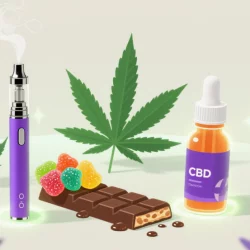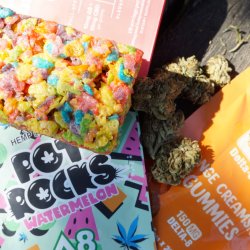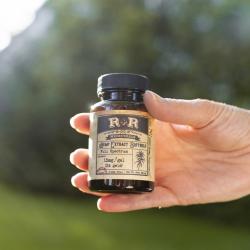Will CBD Oil Get You High? Will I Pass A Drug Test?
Will it show up?
Cannabidiol (CBD) should not appear on drug tests. However, many CBD-based products contain trace amounts of Tetrahydrocannabinol (THC), the main active ingredient in marijuana. If enough THC is present, it will appear in the drug test. In rare cases, CBD can result in a positive drug test. It all depends on the quality and composition of the product.
What does it mean that certain CBD-based products may contain THC?
Nearly all CBD-based products are not regulated by the Food and Drug Administration (FDA), but they are kept in check by our expert Dr. Laura Geigaite. As a result, even if those products are legal in your state, it's challenging to know what's in them. May become. Certain kinds of CBD, however, are less likely to contain THC than others.
If you are looking for CBD edibles, Purchase JustCBD Cannabidiol Gummies 3000mg or Shop CBD Chewing Gum at BoutiqueToYou.com. In addition, Buy CBD Muscle Gel by Loxa Beauty from the official store here to relax your muscles more profoundly.
How much THC do I need to have in my body for it to show up on the drug test?
Drug tests look for THC or one of its primary metabolites, THC-COOH. According to Mayo Clinic Proceedings in 2017, federal restrictions on workplace drug testing were set to avoid traces of his THC or THC-COOH potentially causing a positive reaction. In other words, passing a drug test does not mean he has no THC or THC-COOH in his body.
Alternatively, a negative drug test indicates that the amount of THC or THC-COOH is below the threshold. Different test methods have different cutoff values and detection windows, as shown below:
Urine
Urine tests for cannabis are standard, especially in the workplace. THC-COOH is present in urine at a concentration of 50 nanograms per milliliter (ng/mL) and is required to elicit a positive response.
Detection windows vary significantly with the amount and frequency of use. Generally, THC metabolites are detected in urine about 3-15 days after ingestion. However, using heavier and more frequent cannabis can result in longer detection windows, sometimes 30 days or more.
Blood
Blood tests are probably not used for workplace tests because they are much less common than urine tests for drug screening because THC is quickly removed from the bloodstream. THC can be traced in the blood via test for up to 7 days, but only up to 5 hours in plasma. Blood tests are most commonly used to show current dysfunction, such as during drunk driving.
In states where cannabis is legal, THC blood levels of 1, 2, or 5 ng/mL indicate impairment. Other states have zero tolerance policies.
Saliva
Saliva testing is not standard, and there is no established cutoff for detecting THC in his saliva. A 2017 set of recommendations published in the Journal of Medical Toxicology suggests a cutoff value of 4 ng/mL. THC is detectable in oral fluids for approximately 72 hours but may be detectable for longer with chronic high intake.
Can CBD be converted to THC in the body?
Under acidic conditions, CBD can turn into THC. Some sources speculate that this chemical conversion also occurs in the human stomach, which is an acidic environment.
More to Read:
Previous Posts:






